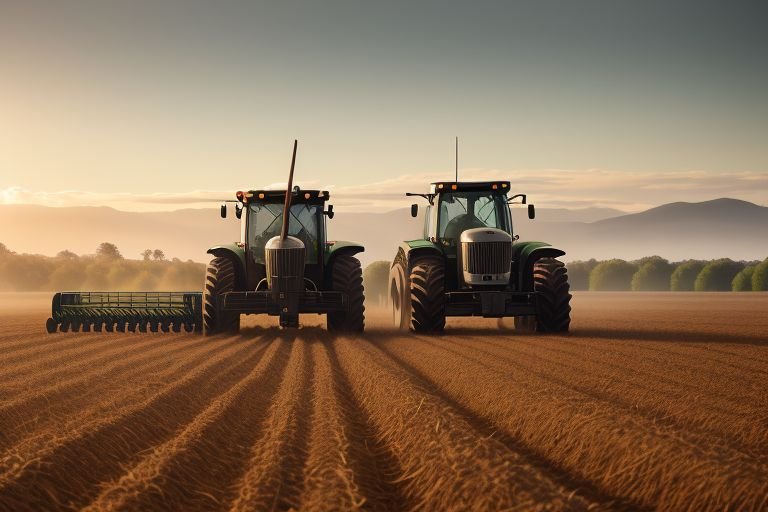In recent years, the global agriculture sector has witnessed remarkable growth, driven by a confluence of technological advancements, increased investments, and evolving farming practices. This expansion is not only transforming the way food is produced but also addressing critical issues related to food security and sustainability.
At the heart of this agricultural revolution is the integration of cutting-edge technologies. Precision agriculture, a farming management concept using modern technologies such as GPS, IoT sensors, and drones, has become a cornerstone of this growth. These technologies allow farmers to monitor and optimize field-level management with high precision. For instance, soil sensors provide real-time data on moisture levels, enabling more efficient water use, while drones offer aerial views that help in assessing crop health and identifying pest infestations early. This data-driven approach leads to increased yields, reduced resource wastage, and lower environmental impact.
Another significant driver of growth in the agriculture sector is biotechnology. Genetic modification and advancements in seed technology have led to the development of crops that are more resistant to diseases, pests, and extreme weather conditions. Genetically modified organisms (GMOs) and other biotech innovations have also enabled the cultivation of crops with enhanced nutritional profiles. These advancements are crucial in addressing the challenges posed by climate change and the need to feed a growing global population.
The sector’s expansion is further supported by a surge in investments aimed at improving infrastructure and research. Governments and private entities are channeling resources into agricultural research and development (R&D), focusing on sustainable practices and innovative solutions. Initiatives such as vertical farming and hydroponics are gaining traction as viable alternatives to traditional farming methods, particularly in urban areas where space is limited. These methods not only increase productivity but also reduce the carbon footprint associated with food production and transportation.
Moreover, the global population’s shifting dietary preferences are contributing to agricultural growth. As incomes rise, particularly in developing nations, there is an increasing demand for diverse and protein-rich foods. This shift is encouraging farmers to diversify their crop and livestock production, which, in turn, supports the growth of various sectors within agriculture, including horticulture, aquaculture, and livestock farming.
The emphasis on sustainability is also playing a crucial role in the sector’s growth. With growing awareness of environmental issues, there is a push towards practices that minimize the ecological impact of farming. Sustainable agriculture involves methods such as crop rotation, reduced use of chemical fertilizers and pesticides, and conservation tillage. These practices help preserve soil health, enhance biodiversity, and reduce greenhouse gas emissions.
Despite these positive developments, the agriculture sector faces challenges that need to be addressed. Climate change remains a significant threat, with unpredictable weather patterns affecting crop yields and exacerbating water scarcity. Additionally, there are concerns about the equitable distribution of technological benefits, as smallholder and subsistence farmers may struggle to access advanced technologies.
In response, there are ongoing efforts to make agricultural innovations more accessible and affordable. Programs aimed at supporting small-scale farmers with training, resources, and financial assistance are crucial in ensuring that the benefits of agricultural growth are shared more broadly.
Overall, the global agriculture sector’s recent growth is a testament to the sector’s resilience and adaptability. With continued advancements in technology, increased investment, and a focus on sustainability, agriculture is poised to play a pivotal role in meeting the world’s food needs and contributing to economic development in the years to come.











+ There are no comments
Add yours